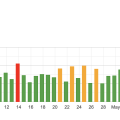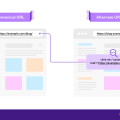Imagine having a vibrant, user-friendly, and sleek website that perfectly represents your brand in the digital world.
That’s exactly what Zimbabwe Web Design offers you. From pioneering design concepts to flawless execution, they craft websites that not only stand out but also drive engagement and growth.
With a keen understanding of both aesthetics and functionality, Zimbabwe Web Design is your go-to for a powerful online presence that resonates with your audience.
Zimbabwe Website Design Services
Have you ever wondered what goes into building a website, especially in a unique market like Zimbabwe? Well, you’re in the right place! Let’s dive into the world of web design in Zimbabwe, and break down everything you need to know.
Whether you’re a business owner looking to establish an online presence, a budding web designer, or just someone curious about the topic, this article will guide you through the essentials.
Introduction to Web Design in Zimbabwe
Web design might sound like a global concept, but regional nuances make each market unique. Zimbabwe, with its rich culture and evolving technological landscape, offers a unique playing field for web design. In this section, we’ll get you acquainted with the importance of web design in Zimbabwe and how it stands out from the rest of the world.
Why Web Design Matters in Zimbabwe
In Zimbabwe, web design is not just about creating visually appealing websites. It’s about crafting digital experiences that resonate with a local audience. The right web design can make or break your online presence. With the growing internet penetration and more businesses going digital, having a well-designed website isn’t just an option; it’s a necessity.
The design of a website affects user experience (UX), search engine optimization (SEO), and how potential customers perceive your brand. A well-thought-out design can help you stand out in a competitive market.
Key Elements of Effective Web Design
So, what makes a good website? Several factors come together to create an effective website, and missing out on even one can have significant repercussions. Let’s break down these elements.
User Experience (UX)
Great web design is all about the user. If your visitors can’t find what they’re looking for quickly, they’ll likely leave and never come back. In Zimbabwe’s market, this becomes vital because users may have limited internet access and faster load times can mean the difference between a potential sale and lost revenue.
Search Engine Optimization (SEO)
SEO is invaluable for driving organic traffic to your website. In Zimbabwe, where digital marketing and online brand presence are still burgeoning, an SEO-optimized website can give you a considerable edge. Incorporating local SEO strategies by using relevant keywords, local backlinks, and optimizing for mobile can make your website more accessible to local users.
Responsive Design
Considering the increasing use of mobile devices in Zimbabwe, ensuring your site is mobile-friendly is essential. A responsive design adapts to different screen sizes and types, providing a seamless user experience whether your user is on a desktop, tablet, or smartphone.

The Zimbabwean Digital Landscape
Understanding the local market is crucial for web design. The digital landscape in Zimbabwe is unique and presents its own set of challenges and opportunities. Let’s navigate these waters.
Internet Usage Statistics
Knowing your audience is half the battle. Here are some key statistics to help you understand the digital landscape:
| Factor | Statistic |
|---|---|
| Internet Penetration | 33.4% |
| Smartphone Usage | 23% |
| Popular Social Media Platform | |
| E-commerce Growth Rate | 13% per year |
Local Preferences
Zimbabweans love content that resonates with their local culture and context. This means incorporating local languages, idioms, and cultural elements can make your website more appealing.
Common Challenges
Zimbabwe’s digital landscape is fraught with challenges like intermittent internet connectivity and limited access to high-speed internet. Therefore, your website should be optimized for speed and offline use where possible.
Essential Tools and Software for Web Design
There are some fantastic tools that can assist you in creating an effective website. Whether you’re designing the site yourself or hiring a professional, knowledge of these tools can be incredibly beneficial.
Web Design Platforms
Below are some popular platforms for web design, tailored to suit all levels of expertise:
| Platform | Pros | Cons |
|---|---|---|
| WordPress | Highly customizable, extensive plugins | Steeper learning curve |
| Wix | User-friendly, drag-and-drop | Limited scalability |
| Joomla | Flexible and robust | Requires technical skills |
| Squarespace | All-in-one platform | Can be costly |
SEO Tools
For optimizing your website for search engines, consider using:
| Tool | Function |
|---|---|
| Google Analytics | Tracks website traffic and user behavior |
| Yoast SEO | Optimizes content for search engines |
| SEMrush | Completes competitive analysis and keyword research |
| Moz | Tracks SEO rankings and provides insights |

Getting Started: Planning Your Website
Before jumping into the design, planning is crucial. A well-planned website saves time and resources. Here’s how you can go about it.
Setting Goals
Identify what you want your website to achieve. Is it to sell products, generate leads, or provide information? Your goals will guide the entire design process.
Research and Competitor Analysis
Look at what your competitors are doing. Analyze their strengths and weaknesses. This will give you a clearer idea of what works and what doesn’t in your market.
Creating a Sitemap
A sitemap is a visual layout of your website’s structure. It outlines the different pages and how they are linked. Creating a sitemap helps in organizing your content and ensuring nothing important is overlooked.
Wireframing
Wireframing is the process of laying out the basic structure of your webpages. It acts as a blueprint and helps in visualizing the site before actual design work begins.
Design: Bringing Your Website to Life
Once your plan is in place, it’s time to move to the design phase. This is where your website starts taking shape.
Choosing a Template or Custom Design
You can either use a template or go for a custom design. Templates are quicker and more cost-effective, while custom designs offer more flexibility and can be tailored to your exact needs.
Color Scheme and Typography
Colors and fonts play a significant role in the aesthetics of your website. Choose a color scheme that resonates with your brand and audience. Use fonts that are easy to read and complement your overall design.
| Element | Recommendation |
|---|---|
| Colors | Use a palette of 3-5 colors that align with your brand |
| Fonts | Use a combination of primary and secondary fonts for headings and body text |
Adding Multimedia Elements
Visual elements like images, videos, and infographics can make your site more engaging. Ensure your multimedia files are optimized for quick loading.
Developing Website Content
Content is king. Whether it’s articles, blog posts, product descriptions, or service pages, your content should be engaging, informative, and optimized for SEO.

Web Development: Bringing Design to Code
The design is like a skeleton, and development adds flesh to it. This phase involves coding your website to make it functional.
Front-end Development
Front-end development focuses on the client side of the website. This involves HTML, CSS, and JavaScript.
Back-end Development
Back-end development deals with the server-side aspects, like databases and server logic. This ensures that your website is secure, performs well, and can handle users’ data effectively.
Testing and Quality Assurance (QA)
Before launching, rigorous testing is essential. QA ensures that your website functions correctly, is free from bugs, and offers a seamless user experience.
Launching Your Website
Congratulations! You’re almost there. Launching your website involves several final checks.
Final Pre-launch Checklist
Ensure everything is in place with this final checklist:
| Checklist | Status |
|---|---|
| Content Optimization | Complete |
| SEO Settings | Adjusted |
| Cross-browser Compatibility | Tested |
| Mobile Responsiveness | Verified |
| Load Time | Optimized |
| Analytics Setup | Installed |
Going Live
Once your pre-launch checklist is complete, it’s time to publish your site. Announce the launch through your social media channels and email marketing campaigns to generate buzz.
Post-launch: Maintaining and Updating Your Website
Your job isn’t done once the website is live. Regular maintenance and updates are crucial for sustained success.
Regular Updates
Keep your content fresh with regular updates. Add new blog posts, update product information, and make necessary design tweaks to keep the user experience top-notch.
Performance Monitoring
Use tools like Google Analytics to monitor the performance of your site. Keep an eye on metrics like page load time, bounce rate, and user engagement.
Security Measures
Web security is vital, especially in markets like Zimbabwe where cyber threats are on the rise. Regularly update your software and plugins, and use SSL certificates to encrypt user data.
Hiring Professional Web Designers in Zimbabwe
Maybe you’d prefer to leave web designing to the experts. Here are some tips on hiring a professional web designer in Zimbabwe.
What to Look For
Look for designers with a strong portfolio, good client reviews, and expertise in current web design trends and technologies. Ideally, they should also have experience working with businesses in Zimbabwe.
Cost Estimates
Web design costs can vary widely based on complexity, designer experience, and specific needs. Here’s a rough breakdown:
| Service Level | Estimated Cost |
|---|---|
| Basic Website | $500 – $1,000 |
| Intermediate Website | $1,000 – $3,000 |
| Advanced Website | $3,000 – $10,000+ |
Questions to Ask
When interviewing potential designers, here are some questions to consider:
- What is your experience with web design in Zimbabwe?
- Can you provide customer testimonials or case studies?
- What is your process for incorporating SEO and mobile responsiveness?
- How do you handle post-launch maintenance?
Conclusion
Designing a website in Zimbabwe presents a unique set of opportunities and challenges. From understanding the digital landscape to leveraging the right tools and strategies, there’s a lot that goes into building an effective website. Whether you’re tackling this project on your own or hiring professionals, this comprehensive guide should give you a solid foundation to create a website that truly stands out.
So, are you ready to embark on your web design journey in Zimbabwe? Dive in, plan meticulously, and watch your online presence flourish!











